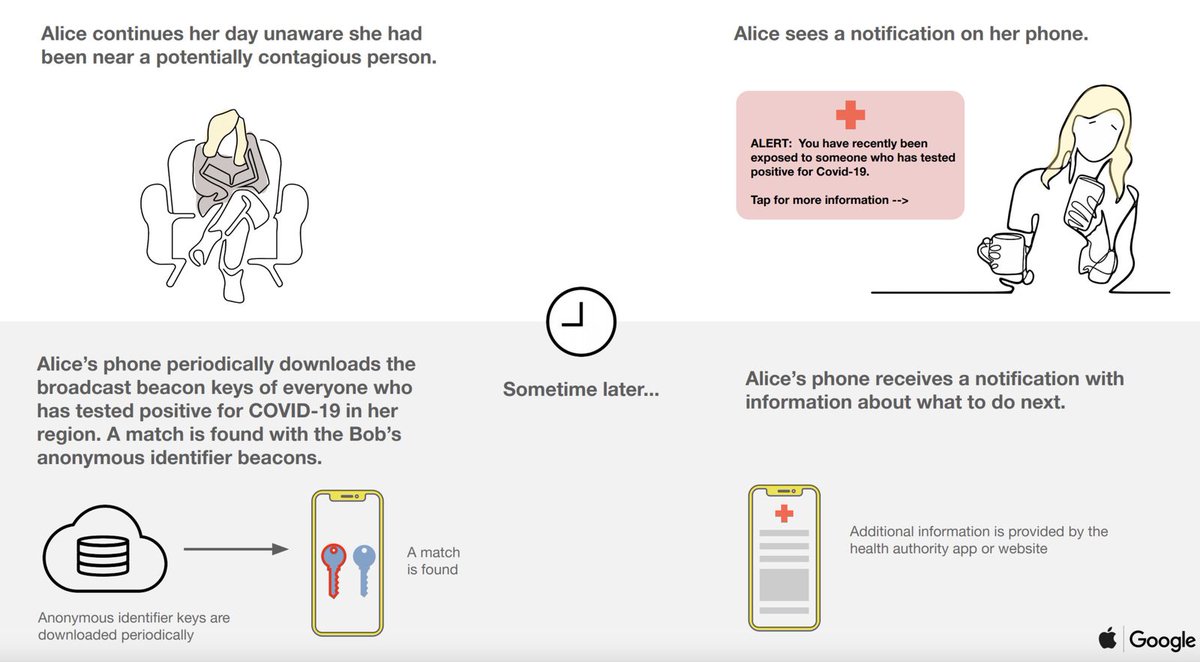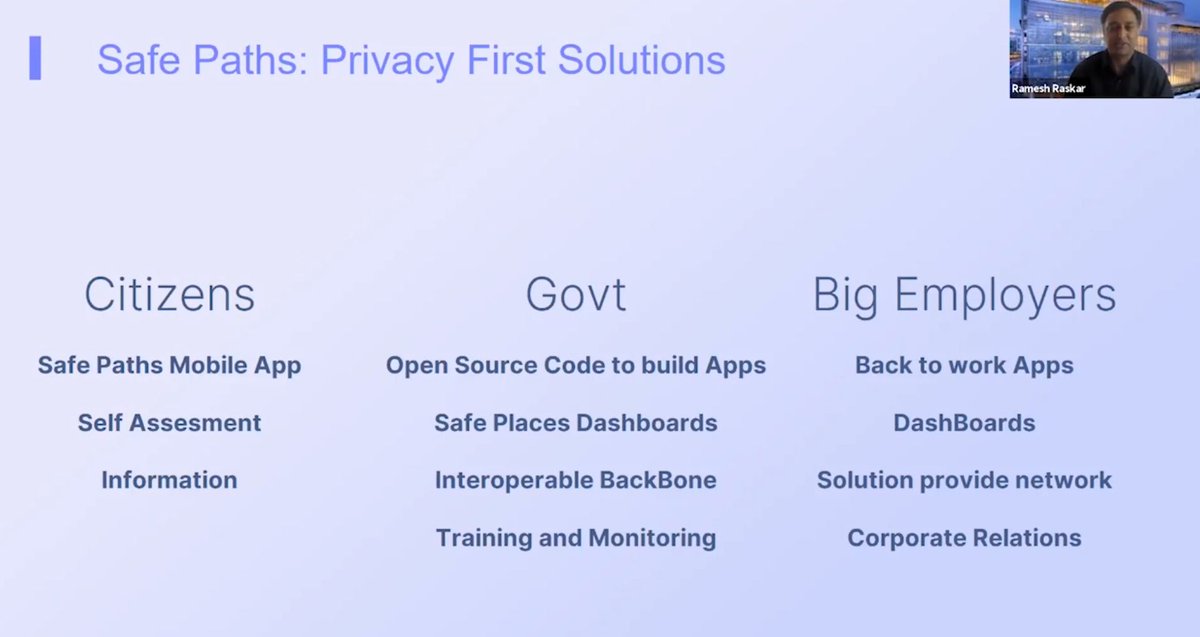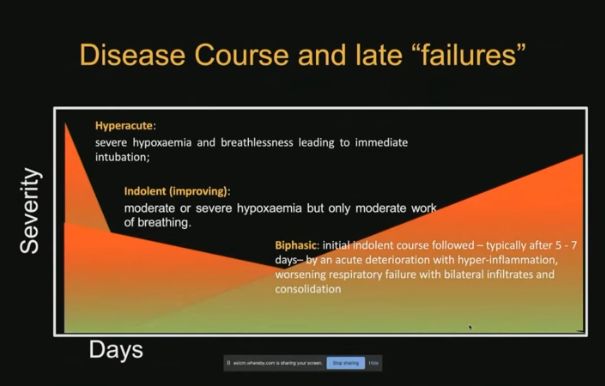1/
2/
3/
bluetrace.io/policy/
6/
- forbidden from using GPS
- Limited to government entities, no way to test
- prohibited from storing location data.
- Onus on users to explicitly opt-in and then identify themselves when infected
10/
theverge.com/2020/5/5/21248…
- GPS data can rule out false positives (i.e. you were wearing a mask when you were exposed)
- GPS can help track and predict hotspots
- You don’t need as much uptake with a GPS based app
11/
12/
pindrop.com/blog/the-gory-…
13/
- Limits on use of data after the crisis
- Oversight and accountability
- Openness and transparency
- De-identification and privacy
priv.gc.ca/en/privacy-top…
14/
research.ox.ac.uk/Article/2020-0…
15/
en.wikipedia.org/wiki/Phoenix_p…
16/
17/
theconversation.com/this-is-why-si…
18/
nytimes.com/2020/04/08/wor…
19/
privacyinternational.org/long-read/3747…
21/
- Governments should be more open. A lot of expertise is sitting on the sidelines, but they need to ask for help. A group of volunteers at @Shopify just put something together in a week. Contact them, and be open about it.
@tobi
ottawamatters.com/local-news/tea…
24/
- Encourage the adoption of open-source projects like MIT’s @covidsafepaths, so we have an insight into the tech
25/
end/







